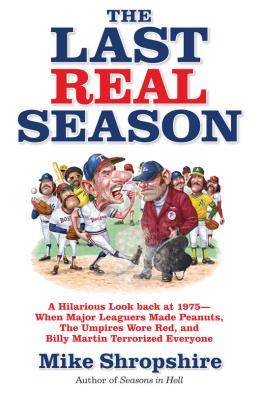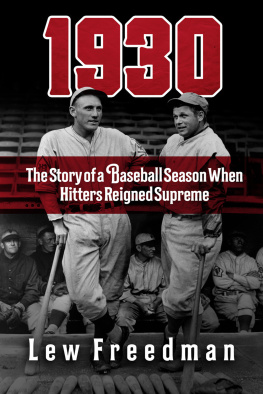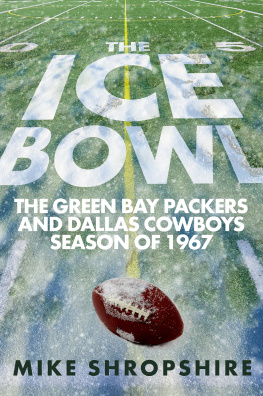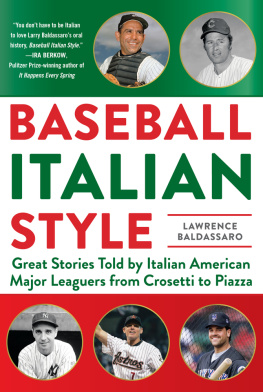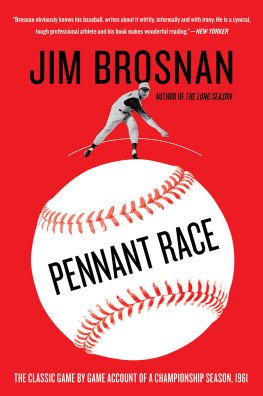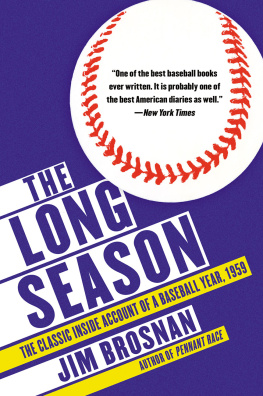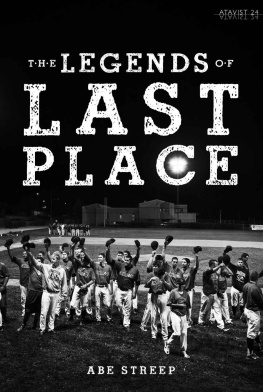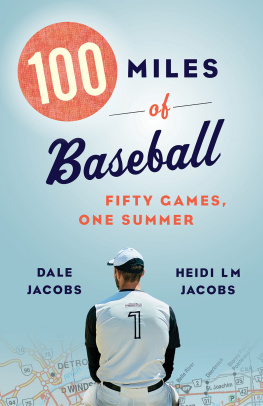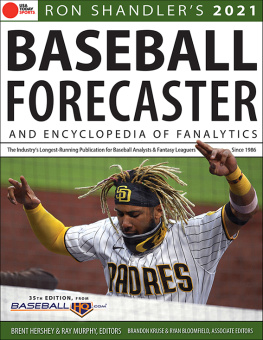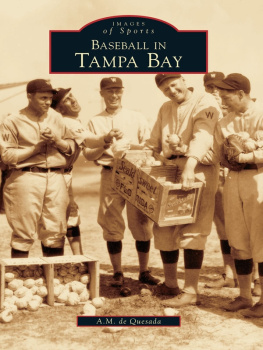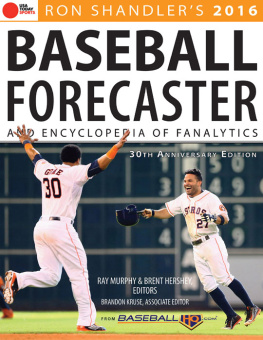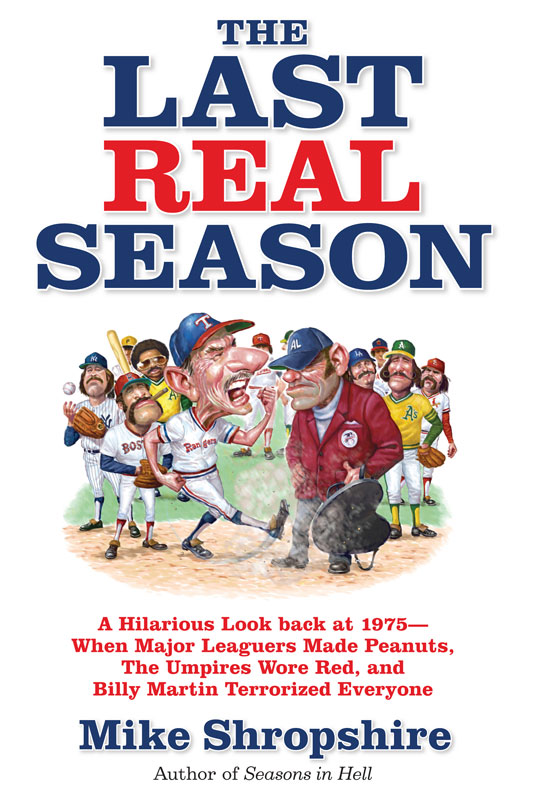Copyright 2008 by Michael Shropshire
All rights reserved. Except as permitted under the U.S. Copyright Act of 1976, no part of this publication may be reproduced, distributed, or transmitted in any form or by any means, or stored in a database or retrieval system, without the prior written permission of the publisher.
Grand Central Publishing
Hachette Book Group
237 Park Avenue
New York, NY 10017
Visit our Web site at www.HachetteBookGroup.com.
First eBook Edition: May 2008
ISBN: 978-0-446-53709-4
SEASONS IN HELL: With Billy Martin, Whitey Herzog and The Worst Baseball Team in HistoryThe 19731975 Texas Rangers
THE ICE BOWL
THE PRO: A Novel
WHEN THE TUNA WENT DOWN TO TEXAS: How Bill Parcells Led the Cowboys Back to the Promised Land
RUNNIN WITH THE BIG DOGS: The True, Unvarnished Story of the Texas-Oklahoma Football Wars
The Clan from County CorkJim, Suzie, Sean, Charlie, and Rory
T hat was a hell of a year in baseball, 1975.
It was August, and the race for the American League East championship was coming to a boil. The Orioles were in Chicago, and we were nursing a two-run lead. The White Sox had runners on first and second base, and the batter hit a line drive into the gap in left center. Paul Blair fielded the ball off the wall on one hop, turned and fired it to Mark Belanger, who knew how to position himself as the cutoff man as well as anybody who played the game. Mark took the throw and in one smooth motion, threw a perfect strike to the catcher, Elrod Hendricks, the runner was out at the plate, and we were out of the inning. The play was sheer artistry and a masterpiece of timing. It turned out to be one of those little game-winning events that never appears in the box score. The White Sox announcers broadcast booth was up there directly behind the visitors dugout. I could actually hear old Harry Caray up there, bellowing at the top of his lungs, Thats why the Baltimore Orioles keep on winning pennants!
I laughed, and thought to myself, Harrys right. And it feels good, too. Pitching and defense. That had been our formula. It worked to the extent that coming into the 1975 season, the Orioles had won our division five out of the last six tries and made it to the World Series three times. We were used to winning and there we were again, entering the home stretch of another pennant battle. And once again, Baltimore had another very, very good ball club. Our team had a Hall of Fame arm, Jim Palmer, and a Hall of Fame glove, Brooks Robinson. I could feel the excitement that builds with being involved in a pennant race. More and more, I was on the field, jawing with umpires. If I thought a guy missed a call, it made me mad and I had to tell him so. I got tossed a couple of timesId go home and watch a replay of my performance on the news and feel embarrassed.
Yes, the pressure was great, but not as great as the sheer fun that comes from being around a bunch of players who are so wrapped up in it that they literally cannot wait to get to the ballpark every day. And every day was a challenge that year. In 1975, the managers I would face in the opposing dugoutsBilly Martin in Texas and New York, Jack McKeon and Whitey Herzog in Kansas City, Ralph Houk in Detroit, Dick Williams in California, Alvin Dark in Oakland, Chuck Tanner in Chicagoeach one of those guys would manage a World Series champion at some point in his career. And two others, Frank Robinson in Cleveland and Del Crandall, had been centerpiece players on World Series winners as well. They all knew how the game was played, and they knew how to manage, too.
After digging ourselves into a ten-games-under-.500 hole in late May, the Orioles played .650 ball the remainder of the season. Coming into the final week, we trailed Boston by a couple of games. Maybe on a team that is twenty-two games back, youll find a player or two whose only motivation is polishing his batting average. But when youre in the race, the pennant is the players passion. That passion might have been fanned by the financial realities of 1975, when a World Series check might match a players entire salary.
We never caught the Red Sox. They went on to play Cincinnati in the memorable World Series of 1975, while we went home. It hurt. It hurts when you lose after you had played as hard as my guys had. But it was over. What I didnt realize, and what nobody associated with the game fully realized, was that much more than another season was over. The structure of the way the sports business was run was over, too.
That was 1975, the last year of normalcy in baseball.
Free agent times had arrived. Owners, front office executives, playersnobody knew what was going to happen...until it happened. Then it exploded. In about a year, our general manager, Hank Peters, who was the architect of that defensive dynasty the Orioles had put on the field, found himself going to Arizona to meet with Reggie Jacksons agent. Hank had to travel because Jacksons agent was afraid to fly. When Hank got back, he didnt have much to say, other than, The numbers those people are talking about are mind-boggling.
I realized that from then on, as a manager I would have to accept the fact that assembling a lineup that kept key players in place for years at a time, like wed done so successfully in Baltimorewell, those times were in the past.
By the time I finished managing in 1982, the New Age of Baseball was in full swing. And Im happy to say that while the salary aspect of the game has been altered so dramatically, the only thing about the players thats changed is the size of their paychecks. They still play the game with the same heart and intensity as the guys who played their guts out trying to win the pennant in 1975. Apparently, its also managed with the same intensity, since Bobby Cox, in Atlanta, broke my major league record for ejections.
I still love to watch baseball. I take in every pitch of the playoffs, and the World Series. If I look at the schedule in the middle of the season and see that, say, San Diego is on TV that night playing Philadelphia, Ill probably watch that, too. But if its still in the second inning, and one of the starters has already thrown sixty-two pitches, then I might turn it off. That kind of stuff makes me want to go light a cigarette.
Earl Weaver
January 2008
T his is a baseball biography. Not of a player, but of a season.
It describes a time and a place that no longer exists. It was a season that said farewell and adis to what can be termed baseballs pre-agent era. The men who played the game in those days performed their on-the-field activities with the same make-it-look-easy grace of the modern athletes. But in more essential ways, they were vastly different. Steroids, they thought, were some tribe of evil aliens that appeared on Star Trek. Their narcotic of choice was served in a glass. I learned a lot about their social rituals and drinking cliques when I followed the Texas Rangers baseball team around, working as a reporter for a Fort Worth newspaper.
The managers and coaches drank scotch. The position players drank vodka or CC and 7. The pitchers favored a concoction of Everclear, 151 rum, and coffin polish. One hurler was probably ordering doubles the night in Florida spring training when he went berserk and kicked in half the doors in the hotel. He spent the remainder of spring training living beneath a pier, hiding from the law. Management was impressed. He would eventually throw a perfect game.
Nearly every person associated with the game smoked in the dugout tunnels between innings, or stuffed their jaws with various vile forms of smokeless tobacco, and the only time they didnt spit was standing at attention during The Star-Spangled Banner. They dont make players like that anymore. They dont have seasons like 75 anymore, either.

